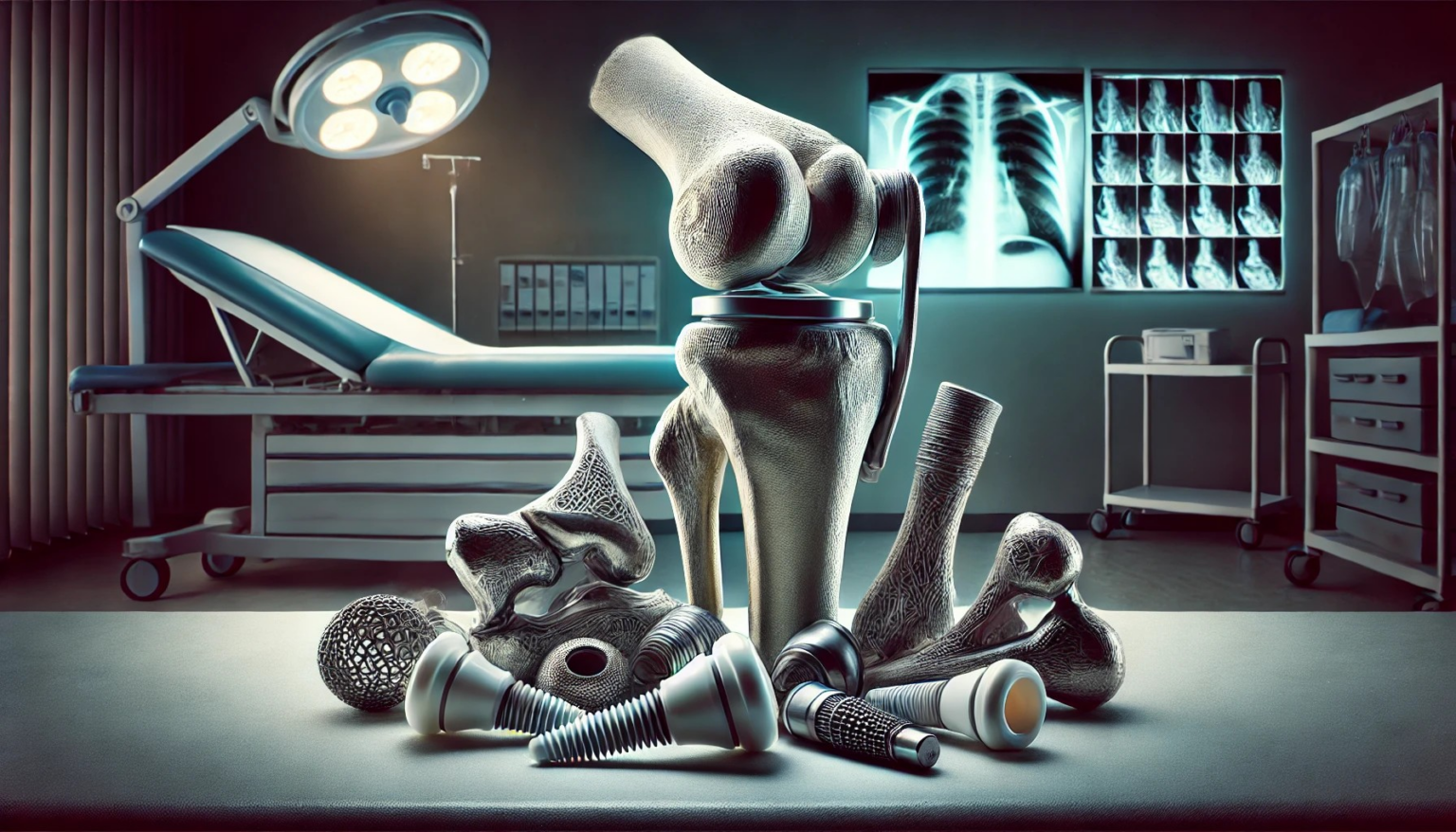The rise of Exatech as a leader in medical technology has sparked debates about the balance between groundbreaking innovation and ethical responsibility. Known for its advanced medical devices, the company has been praised for its contributions to healthcare while facing criticism over safety concerns. These controversies raise important questions about the impact of rapid technological advancement in the medical field and the safeguards in place to protect patients. The consolidation of lawsuits into multidistrict litigation (MDL) in federal court highlights the ongoing legal proceedings and the strategic decisions made by companies like Exatech facing litigation.
Mass Tort America is committed to advocating for patients affected by unsafe medical devices. If you’ve been impacted by Exatech’s products, we’re here to guide you. With a nationwide presence and a dedicated Concierge Team, we make it easy for patients across the United States to seek justice. Let’s dive deeper into the complexities of Exatech’s influence and the legal considerations surrounding its practices.
Introduction
Medical negligence is a significant public health concern that affects patient safety and outcomes. Recognized by the World Health Organization (WHO) as a global health priority, patient safety initiatives have been launched worldwide to improve patient safety and reduce adverse events. This article aims to provide an overview of medical negligence, its impact on patient outcomes, and the global action on patient safety. By examining the case of Exatech, we can better understand the complexities and challenges involved in balancing innovation with ethical responsibility in the medical field.
A History Of Innovation And Controversy
Exatech was founded with a mission to revolutionize medical technology, bringing to market advanced devices designed to improve patient outcomes and streamline healthcare delivery. From artificial joints to robotic surgical systems, Exatech has introduced solutions that promise to enhance the quality of life for millions. However, the company’s rapid growth and ambition have not come without controversy.
The growing number of class action lawsuits filed against Exatech due to their controversial products further underscores the legal challenges the company faces.
The company’s aggressive approach to product development has been both a strength and a weakness. On one hand, it has led to innovations that push the boundaries of medical science. On the other, it has raised questions about whether sufficient time and resources are devoted to testing and validating these products before they are marketed. Critics argue that this “move fast and fix later” approach has resulted in avoidable harm to patients.
Exatech’s history also includes instances of regulatory scrutiny. The company has faced investigations over allegations of inadequate clinical testing, misleading marketing practices, and delayed reporting of adverse events. These issues highlight the challenges that arise when the pursuit of profit competes with the ethical obligation to ensure patient safety.
Exatech’s Most Controversial Products
Several Exatech devices have become focal points of debate, particularly those linked to high-profile recalls or lawsuits. One such product is their titanium joint implant, marketed as a durable solution for patients requiring hip or knee replacements. While initially praised for its cutting-edge design, reports of implant failures began to surface, resulting in severe complications for some patients.
Ongoing mass torts related to Exatech’s titanium joint implants and other products highlight the significant legal challenges the company faces, with expectations for high-stakes settlements in the future.
Another controversial innovation is Exatech’s robotic surgical assistant. Promoted as a tool for improving precision and reducing surgical errors, the system has faced criticism for being difficult to operate and prone to malfunctions. Lawsuits have alleged that insufficient training and software glitches have led to preventable injuries during procedures.
Lastly, the company’s cardiac stents have drawn attention for their potential to cause blood clots and other complications. Despite initial FDA approval, subsequent studies have raised concerns about their long-term safety, prompting calls for tighter oversight of medical devices.
Regulatory Loopholes And Patient Safety
The medical device approval process in the United States relies heavily on FDA regulations, but the system is not without flaws. One common pathway used by companies like Exatech is the 510(k) clearance process, which allows devices to enter the market if they are “substantially equivalent” to an existing product. This expedited route often bypasses the rigorous testing required for entirely new devices.
Critics argue that this system creates a dangerous loophole, enabling companies to introduce products without fully understanding their risks. In Exatech’s case, some of their devices approved under 510(k) have been linked to significant complications. This has led to questions about whether the current regulatory framework adequately protects patients. A systematic review published in BMC Med analyzes the prevalence and severity of preventable patient harm in medical devices, highlighting the need for improved safety measures.
Recent legislative efforts aim to address these gaps by strengthening post-market surveillance and increasing transparency. However, enforcement remains a challenge, particularly when companies fail to promptly report adverse events. Advocacy groups continue to push for reforms to ensure that patient safety is prioritized over corporate profits.
The Role Of Healthcare Providers In Device Adoption
Healthcare providers play a critical role in the adoption of new medical technologies. Many rely on information provided by manufacturers like Exatech to make decisions about which devices to use. However, this relationship is not always transparent, as financial incentives and marketing pressures can influence decision-making.
For example, some hospitals have reported being offered discounts or rebates in exchange for adopting Exatech products. While these arrangements can reduce costs, they also raise ethical concerns about whether patient safety is being compromised. Physicians must navigate these complexities to ensure they prioritize the best interests of their patients.
Healthcare professionals, including housemen, play a crucial role in mitigating medical errors and enhancing patient safety standards. Works by Houseman B emphasize the importance of proper training and responsibilities in reducing medical errors and improving healthcare outcomes.
Additionally, providers have a responsibility to thoroughly educate themselves about the devices they use. This includes reviewing clinical data, understanding potential risks, and ensuring proper training. Failure to do so can exacerbate the consequences of device malfunctions, leaving both patients and providers vulnerable to harm.
Patient Advocacy And The Push For Transparency
Patients affected by faulty medical devices often find themselves navigating a complex and opaque system. Many are unaware of their rights or the legal options available to them. Advocacy groups and legal teams like Mass Tort America are working to change this by raising awareness and demanding greater accountability from manufacturers like Exatech.
Academic research publications in prominent medical journals, such as Medicine, play a crucial role in understanding and managing medical negligence. These studies contribute significantly to the knowledge base, helping to improve healthcare practices and patient safety.
Transparency is a key focus of these efforts. Patients have a right to know the risks associated with their medical devices, and companies have a duty to disclose this information. Unfortunately, instances of non-disclosure or misleading advertising are all too common, leaving patients in the dark about potential complications.
Legal actions against Exatech and similar companies aim to not only secure compensation for affected patients but also drive systemic change. By holding manufacturers accountable, these cases send a powerful message about the importance of ethical practices in the medical device industry.
Impact On Patient Outcomes
Medical negligence can have a profound impact on patient outcomes, leading to increased morbidity, mortality, and healthcare costs. A systematic review of 15 studies revealed a high rate of adverse events associated with medical negligence, including medication errors, surgical errors, and hospital-acquired infections. Another study found that medical negligence is a leading cause of preventable deaths in the United States, with an estimated 250,000 deaths per year. These alarming statistics underscore the urgent need to improve patient safety and reduce medical negligence to enhance patient outcomes and public health.
Global Action On Patient Safety
In response to the pressing need for improved patient safety, the WHO has launched several initiatives, including the Global Patient Safety Action Plan 2021-2030. This comprehensive plan aims to achieve the maximum possible reduction in avoidable harm due to unsafe healthcare globally. Key strategies include improving healthcare infrastructure, enhancing patient safety culture, and promoting research and development. Additionally, the WHO’s Patient Safety Flagship initiative provides guidance and support for strategic action on patient safety at the global, regional, and national levels. These efforts are crucial in driving systemic change and ensuring that patient safety remains a top priority.
Medical Education And Support
Medical education and support are critical components in the quest to improve patient safety and reduce medical negligence. Healthcare providers must be well-versed in patient safety principles, including the use of evidence-based practices, effective communication, and teamwork. Medical education programs should incorporate training on patient safety, risk management, and quality improvement. Furthermore, healthcare providers need access to resources, tools, and expertise to support their efforts in improving patient safety. By investing in education and support, we can empower healthcare providers to deliver safer, higher-quality care to their patients.
Emerging Technologies And Future Concerns
As technology continues to evolve, the medical device industry is entering uncharted territory. Innovations such as AI-driven diagnostics, bioengineered implants, and nanotechnology hold tremendous promise, but they also come with new risks. Exatech is at the forefront of many of these developments, raising questions about how future advancements will be regulated and tested.
One concern is the ethical use of data in AI-driven devices. These technologies rely on vast amounts of patient data, raising privacy and security concerns. Ensuring that this data is handled responsibly will be critical to maintaining public trust in these innovations.
Additionally, the global nature of the medical device market complicates regulation. Devices developed abroad may not be subject to the same rigorous standards as those in the United States, creating potential safety gaps. As Exatech and other companies expand internationally, harmonizing regulations will be essential to protecting patients worldwide.
Conclusion
Medical negligence is a significant public health concern that affects patient safety and outcomes. Addressing this issue requires a multifaceted approach, including global action, medical education, and support. The WHO’s Global Patient Safety Action Plan 2021-2030 and the Patient Safety Flagship initiative are critical steps towards achieving this goal. Healthcare providers, policymakers, and patients must work together to improve patient safety and reduce medical negligence, ultimately enhancing patient outcomes and public health. By holding manufacturers like Exatech accountable and prioritizing ethical practices, we can drive meaningful change in the medical device industry.
Why Choose Mass Tort America For Your Case?
At Mass Tort America, we are dedicated to standing up for patients impacted by unsafe medical devices. With a nationwide reach and a team that understands the complexities of mass tort cases, we are uniquely equipped to help you seek justice. Whether you’re dealing with complications from an Exatech product or another medical device, we can guide you through the legal process.
Our Concierge Team is here to simplify every step, from gathering medical records to coordinating legal representation. Don’t let corporate negligence go unchallenged. Contact us today at 800-356-4338 or visit our contact form at https://masstortamerica.com/contact/ to learn how we can help.



















